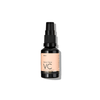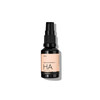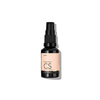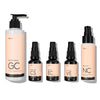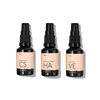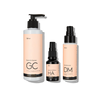How to Treat and Prevent Deep Cystic Acne
Deep cystic acne is a severe form of acne that can be both painful and challenging to manage. It occurs when oil and dead skin cells build up deep within the hair follicles, leading to inflammation and the formation of large, red, and tender bumps beneath the skin's surface. If left untreated, cystic acne can result in scarring and emotional distress. However, with proper care and treatment, you can effectively manage and prevent this condition. Here's how:

1. Understand the Causes
The first step in treating and preventing deep cystic acne is understanding its causes. Hormonal imbalances, genetics, and certain lifestyle factors, such as stress and diet, can contribute to the development of cystic acne. Identifying potential triggers can help you manage the condition more effectively.
2. Consult a Dermatologist
If you suspect you have cystic acne, it's crucial to consult a dermatologist. They can provide an accurate diagnosis and recommend a treatment plan tailored to your specific needs. Early intervention can prevent the condition from worsening and reduce the risk of scarring.
3. Use Prescription Medications
Your dermatologist may prescribe oral or topical medications to treat cystic acne. Oral medications, such as isotretinoin or hormonal therapies like birth control pills, can be effective in reducing the severity of acne and preventing future breakouts. Topical treatments, including retinoids and benzoyl peroxide, can help unclog pores and reduce inflammation. Additionally, incorporating a vitamin C serum into your skincare routine can provide antioxidant protection and promote skin healing.
4. Incorporate a Gentle Skincare Routine
A gentle skincare routine is essential for managing cystic acne. Use a mild, non-comedogenic cleanser to wash your face twice a day, and avoid harsh exfoliants or scrubbing, which can irritate the skin and exacerbate acne. After cleansing, apply a lightweight, oil-free moisturiser to keep your skin hydrated. Adding a vitamin C serum can also help brighten the skin and reduce the appearance of acne scars.

5. Avoid Picking or Squeezing
Resist the temptation to pick or squeeze cystic acne lesions. This can lead to further inflammation, infection, and scarring. Instead, allow the acne to heal naturally or seek professional treatment for extraction.
6. Consider In-Office Treatments
In some cases, in-office treatments may be recommended to manage cystic acne. These can include corticosteroid injections to reduce inflammation, light therapy to kill acne-causing bacteria, or chemical peels to exfoliate the skin and improve its texture. Incorporating a vitamin C serum post-treatment can aid in skin recovery and enhance the results.
7. Make Lifestyle Changes
Making certain lifestyle changes can also help prevent and manage cystic acne. Eating a balanced diet, reducing stress, and getting enough sleep can all positively impact your skin's health. Additionally, avoid touching your face frequently, as this can transfer bacteria and oils that can clog pores.
8. Be Patient and Consistent
Treating cystic acne takes time and consistency. It's important to stick to your treatment plan and give it time to work. While it can be frustrating to wait for results, patience is key to achieving clearer, healthier skin.
9. Monitor Your Skin's Response
As you undergo treatment, monitor your skin's response and communicate with your dermatologist. If you experience any adverse reactions or if your acne doesn't improve, your treatment plan may need to be adjusted.
10. Focus on Long-Term Management
Even after your cystic acne has cleared up, it's important to continue with a skincare routine and lifestyle habits that promote healthy skin. Regular check-ups with your dermatologist can also help you maintain clear skin and prevent future breakouts.
In conclusion, deep cystic acne can be a challenging condition to manage, but with the right approach and professional guidance, it is possible to treat and prevent it effectively. Remember to be patient, consistent, and proactive in your skincare routine, and don't hesitate to seek help from a dermatologist when needed.
